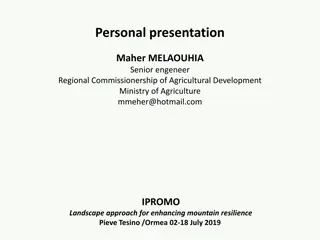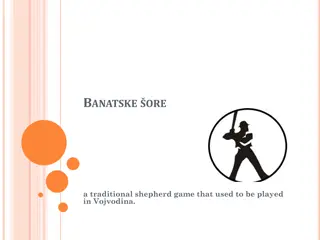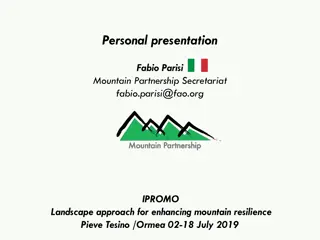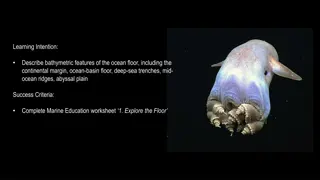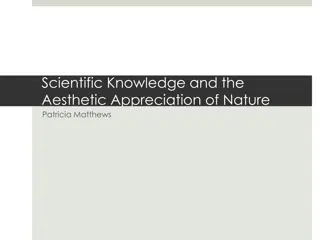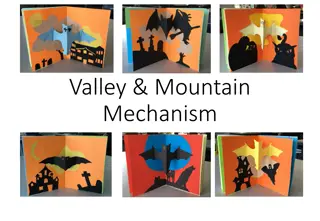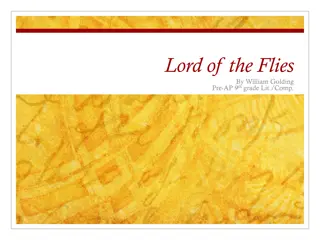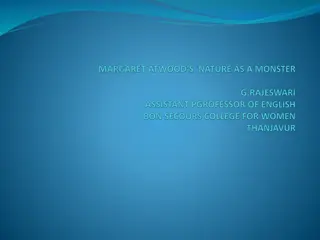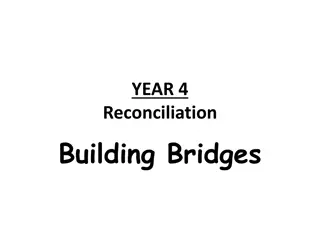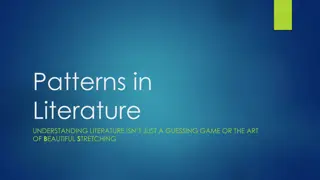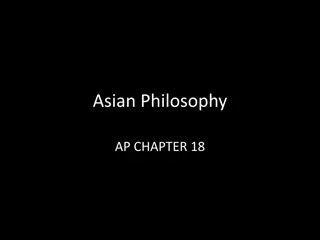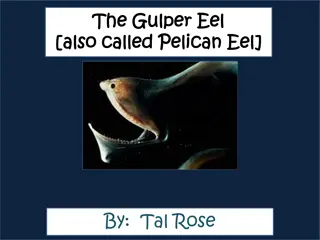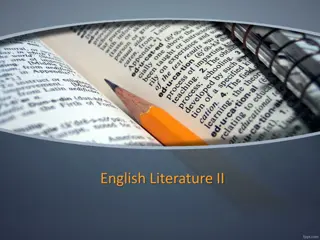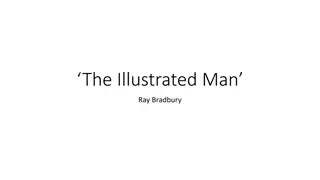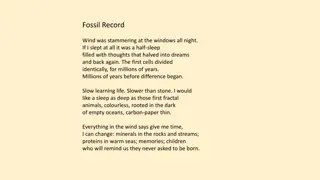Exploring the Depths of Nature: Insights from "The Living Mountain" by Nan Shepherd
Delve into the profound reflections of Nan Shepherd in "The Living Mountain," where she articulates her journey of self-discovery intertwined with the beauty and mystique of nature. Through her poetic prose, she reveals the transformative power of immersing oneself in the mountain's essence, allowing for a deeper connection to both the external landscape and the inner self. Experience the captivating narrative of a soul seeking enlightenment through the timeless wisdom of the natural world.
Download Presentation

Please find below an Image/Link to download the presentation.
The content on the website is provided AS IS for your information and personal use only. It may not be sold, licensed, or shared on other websites without obtaining consent from the author. Download presentation by click this link. If you encounter any issues during the download, it is possible that the publisher has removed the file from their server.
E N D
Presentation Transcript
The Living Mountain Alison Lumsden University of Aberdeen Image courtesy of Nan Shepherd s Literary Executor
Publications The Quarry Wood (1928) The Weatherhouse (1930) A Pass in the Grampians (1933) In the Cairngorms (poems, 1934) The Living Mountain (non-fiction, 1977)
Image courtesy of Nan Shepherds Literary Executor Image used under creative commons licence
But as I grow older and less self- sufficient, I began to discover the mountain in itself. Everything became good to me, its contours, its colours, its waters and rock, flowers and birds. This process has taken many years and is not yet complete. Knowing another is endless. And I have discovered that man s experience of them enlarges rock, flower and bird. The thing to be known grows with the knowing.
I believe that I now understand in some small measure why the Buddhist goes on pilgrimage to a mountain. The journey is itself part of the technique by which the god is sought. It is a journey into Being; for as I penetrate more deeply into the mountain s life, I penetrate also into my own. For an hour I am beyond desire. It is not ecstasy, that leap out of the self that makes man like a god. I am not out of myself, but in myself I am. To know Being, this is the final grace accorded by the mountain. (p.84) Image used under creative commons licence
So hard it was that morn to tell If earth or heaven I saw, I knew not how on earth to dwell Nor how from heaven withdraw. ( In the Cairngorms, p.7)
Summer on the high plateau can be delectable as honey: it can also be a roaring scourge. To those who love the place, both are good, since both are part if its essential nature. And it is to know its essential nature that I am seeking here. To know, that is, with the knowledge that is a process of living. That is not done easily nor in an hour. It is a tale too slow for the impatience of our age, nor of immediate import for its desperate problems. Yet it has its own rare value. It is, for one thing, a corrective of glib assessment: one never quite knows the mountain, nor oneself in relation to it. However I walk on them, these hills hold astonishment for me. There is no getting accustomed to them. (p.1).
Some of the lochs also are greenthe greenness of the water varies according to the light, now aquamarine, now Verdigris, but it is always pure green, metallic rather than vegetable This water from the granite is cold. To drink it at the source makes the throat tingle. A sting of life is in its touch. The sound of all this moving water is as integral to this moving water as pollen to the flower. One hears it without listening as one breathes without thinking. But to a listening ear the sound disintegrates into many different notes the slow slap of a loch, the high trill of a rivulet, the roar of a spate. On one short stretch of burn the ear may distinguish a dozen different notes at once the most appalling quality of water is its strength. I love its flash and gleam, like music, its pliancy and grace, its slap against my body; but I fear its strength. (pp.25 27)
Climb as often as you will, Loch Coire and Lochan remains incredible. It cannot be seen until one stands on its lip, but only height hides it to be so open and yet so secret (p.9 - 10).
Rain in the air has also the odd power of letting one see things in the round, as though stereoscopically The rays of light, refracted through the moisture in the air, bend round that back of what I am seeing Haze, which hides, can also reveal. Dips and ravines are discerned in what had appeared a single hill: new depth is given to the vista Veils of thin mist drifting along the same great loch-face look iridescent as they float between the sun and the red rock. (p.43)
As I lay night after night outside the door of the text, watching the last light glow upon the plateau, I had an odd sensation of being actually myself there. My field felt the same height, I also lay bathed in the afterglow that had gone from all but the summits. Half-closing the eyes can also change the values of what I look upon Such illusions, depending on how they eye is placed and used, drive home the truth that our habitual vision of things is not necessarily right: it is only one of an infinite number and to glimpse an unfamiliar one, even for a moment, unmakes us, but steadies us again. It s queer but invigorating. It will take a long time to get to the end of a world that behaves like this if I do no more than turn round on my side or my back.. (p.101)
As one slips over into sleep, the mind grows limpid,; the body melts; perception alone remains. One neither thinks, nor desires, nor remembers, but dwells in pure intimacy with the tangible world I am emptied of preoccupation, there is nothing between me and the earth and sky . I have let go my self. The experience is peculiarly precious because it is impossible to coerce (pp.90 91)
So, simply to look on anything, such as a mountain, with the love that penetrates to its essence, is to widen the domain of being in the vastness of non-being. Man has no other reason for his existence (p.102)
How new it has become! From the close-by sprigs of heather to the most distant fold of the land, each details stands erect in its own validity. In no other way have I seen of my own unaided sight that the earth is round. As I watch, it arches its back, and each layer of landscape bristles though bristles is a word of too much commotion for it. Details are no longer part of a grouping in a picture of which I am the focal point, the focal point is everywhere. Nothing has reference to me, the looker. This is how the earth must see itself. (8)





